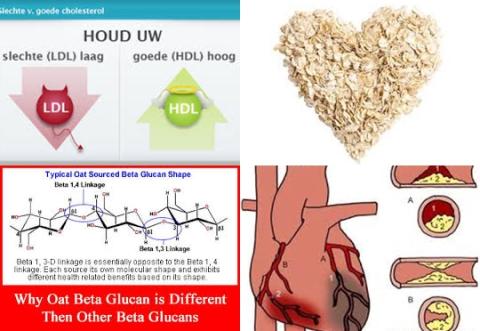
Objectives:
Oat supplementation interventions (OSIs) may have a beneficial effect on cardiovascular disease (CVD) risk. However, dietary background can modulate such effect. Therefore, this review article has been conducted.
Does dietary oat supplementation lower levels of blood lipids (cholesterol, triglycerides) and improve anthropometric parameters (glucose level, body mass index, weight, blood pressure, waist circumference) among participants with predominantly mild metabolic disturbances?
Study design:
This review article included 74 RCTs with a total of 4,937 predominantly hypercholesterolemic, obese subjects, with mild metabolic disturbances. Of these, 59 RCTs contributed to the meta-analyses.
The majority of included RCTs (81.1%) had some concerns for risk of bias.
Results and conclusions:
The investigators found oat supplementation (as oat, oat beta-glucan-rich extracts or avenanthramides), compared to control arms without oats, significantly improved levels of:
-total cholesterol (TC) [WMD = -0.42 mmol/L, 95% CI = -0.61 to -0.22];
-LDL cholesterol [WMD = -0.29 mmol/L, 95% CI = -0.37 to -0.20];
-glucose [WMD = -0.25 nmol/L, 95% CI = -0.36 to -0.14];
-body mass index [WMD = -0.13 kg/m2, 95% CI = -0.26 to -0.01];
-weight [WMD = -0.94 kg, 95% CI = -1.84 to -0.05] and;
-waist circumference [WMD = -1.06 cm, 95% CI = -1.85 to -0.27].
The investigators found RCTs on inflammation and/or oxidative stress markers were scarce and with inconsistent findings.
The investigators found RCTs comparing an oat supplementation intervention to heterogeneous interventions (e.g., wheat, eggs, rice, etc.), showed lowered levels of glycated haemoglobin, diastolic blood pressure, HDL cholesterol and apolipoprotein B.
The investigators concluded dietary oat supplementation (as oat, oat beta-glucan-rich extracts or avenanthramides) may lower levels of blood lipids and improve anthropometric parameters among obese participants with predominantly mild metabolic disturbances, regardless of dietary background or control. May lower because the majority of included RCTs had some concerns for risk of bias. Therefore, further high-quality trials are warranted to establish the role of oat supplementation intervention on blood pressure, glucose homeostasis and inflammation markers.
Original title:
Effect of oat supplementation interventions on cardiovascular disease risk markers: a systematic review and meta-analysis of randomized controlled trials by Llanaj E, Dejanovic GM, […], Muka T.
Link:
https://pubmed.ncbi.nlm.nih.gov/34977959/
Additional information of El Mondo:
Find more information/studies on oat consumption, overweight and cardiovascular diseases right here.
These products are suitable for persons with cardiovascular diseases.